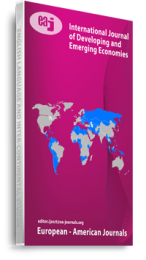The Nigerian economy needs more investment, even after adopting a policy of trade liberalisation. Foreign capital inflows could help, but corruption is a major barrier. This study focused on how trade liberalisation affects corruption in Nigeria from 1990 to 2022. Secondary data collected from the Central Bank of Nigeria Statistical Bulletin report 2022. while data on control of corruption was sourced from World Governance Indicator and the data were analyzed applying the auto-regressive distributed lag model (ARDL). The results from the ARDL estimates demonstrated that in the short run at 5% critical value, trade liberalisation had a significant and positive impact on corruption (ΔTLP (-2)) = 0.7076; p=0.0031) while in the long run trade liberalisation (TLP) was insignificant in influencing corruption in Nigeria. Consequently, the study concludes that anticorruption policies and trade liberalisation separately reduce corruption in Nigeria. The study therefore recommends that the recent fiscal policy of the government towards autarky is ill-advised as result of the findings of this study which has confirmed that trade liberalisation entails policy direction that enhances the capacity of the economy to attract foreign capital inflows.
Keywords: Corruption, autoregressive distributed lag, capital inflow, trade liberalisation

